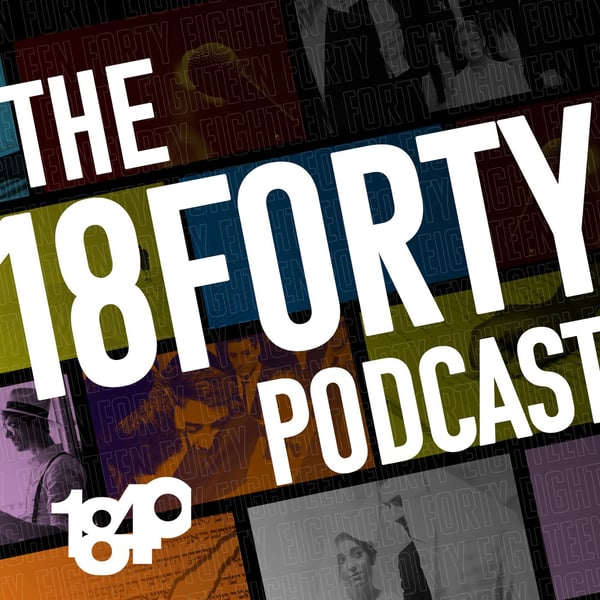Martha Minow: When Law Should Forgive: On the Limitations of Teshuva [Teshuva 2/5]
18Forty Podcast
18Forty
4.6 • 638 Ratings
🗓️ 29 August 2023
⏱️ 76 minutes
🧾️ Download transcript
Summary
In this episode of the 18Forty Podcast, we talk to Martha Minow, a legal scholar and a professor at Harvard Law School, about forgiveness, law, and the boundaries of teshuva.
In a world of ubiquitous transgression, our desire for justice and healing feels perpetually unsatisfied. Why is reconciliation seemingly so hard to get right? In this episode we discuss:
- How is doing teshuva different from confessing in court?
- What is the role of reparations in reconciliation?
- Why is forgiveness such an important part of human culture?
Interview begins at 17:13.
Martha Minow is a legal scholar and professor at Harvard Law School, where she has taught since 1981. Martha serves as the 12th dean of Harvard Law School, was a candidate mentioned to replace Supreme Court Associate Justice John Paul Stevens upon his retirement, and has served as chair of the MacArthur Foundation. Martha clerked for Judge David Bazelon of the United States Court of Appeals for the D.C. Circuit and then for Justice Thurgood Marshall of the Supreme Court of the United States, and is the author of many articles and books on matters of civil procedure, constitutional law, and human and religious rights.
References:
“Warren Studies Talmudic Law Here”
The Rabbi As Symbolic Exemplar by Jack H. Bloom
Makkot 13b
When Should Law Forgive? by Martha Minow
Netivot Olam, Netiv Hatshuva 2
Resisei Layla 3
Takanat HaShavin 8
The Sunflower: On the Possibilities and Limits of Forgiveness by Simon Wiesenthal
On Apology by Aaron Lazare
Mea Culpa: A Sociology of Apology and Reconciliation by Nicholas Tavuchis
Become a supporter of this podcast: https://www.spreaker.com/podcast/18forty-podcast--4344730/support.
Transcript
Click on a timestamp to play from that location
| 0:00.0 | Hi friends, a few months ago we advertised the birth of a new community in Israel. |
| 0:05.4 | Eden Bait Shemesh, a community tailored made for all those of us in need of a five-year plan, |
| 0:12.7 | and let's face it, we are living in a time when every single one of us should be drafting the five-year plan for our futures in Israel. |
| 0:20.5 | Our own listeners from within the 1840 community have purchased in Eden, an opportunity which |
| 0:26.4 | they will longingly watch unfold into a reality, a shul, and a community. |
| 0:32.1 | I am so proud that the leaders behind Aden are none other than Rabbi Benny and Khani Krohn. I know them personally because they are the rabbi and Rebitten of my own |
| 0:42.4 | personal community and they are the ones leading this new development community. And I know for my own life that |
| 0:49.6 | their stewardship, their leadership is you know this is going to be a welcoming, joyous, incredible |
| 0:55.7 | community where everyone is going to be able to feel comfortable and build a home. |
| 1:00.2 | On June 29th, Eden will be hosting a webinar to speak in detail about the vision for this project. |
| 1:07.6 | In order to register, please click the link below or email info at |
| 1:12.7 | Edenbateshemesh.com to find out more. Once again, that's info at Edenbateshemesh.com |
| 1:20.2 | to find out more. The Koran Tanakh of the land of Israel offers a groundbreaking way to experience the Hebrew Bible, |
| 1:31.2 | spearheaded by editor-in-chief David Arnowitz and featuring a fresh English translation by Rabbi Lord Jonathan Sacks Zatzal. |
| 1:40.8 | This edition brings the biblical world to life by blending the sacred text with cutting-edge |
| 1:47.1 | insights from archaeology, history, and ancient near-eastern studies. Unlike traditional editions, |
| 1:54.1 | this Tanakh places the events, laws, and prophecies of the Bible into the rich, historical, |
| 2:00.3 | cultural, and geographic context in which they |
| 2:03.3 | occurred, offering a deeper, more accurate understanding of the text. Readers explore the world of |
| 2:10.0 | the Tanakh as it truly was, from architecture and politics to poetry and language, making ancient |
| 2:16.6 | stories vivid, relevant, and alive. |
| 2:19.9 | Five volumes are currently available. Genesis, Exodus, Leviticus, Numbers, and Samuel, |
... |
Please login to see the full transcript.
Disclaimer: The podcast and artwork embedded on this page are from 18Forty, and are the property of its owner and not affiliated with or endorsed by Tapesearch.
Generated transcripts are the property of 18Forty and are distributed freely under the Fair Use doctrine. Transcripts generated by Tapesearch are not guaranteed to be accurate.
Copyright © Tapesearch 2025.

